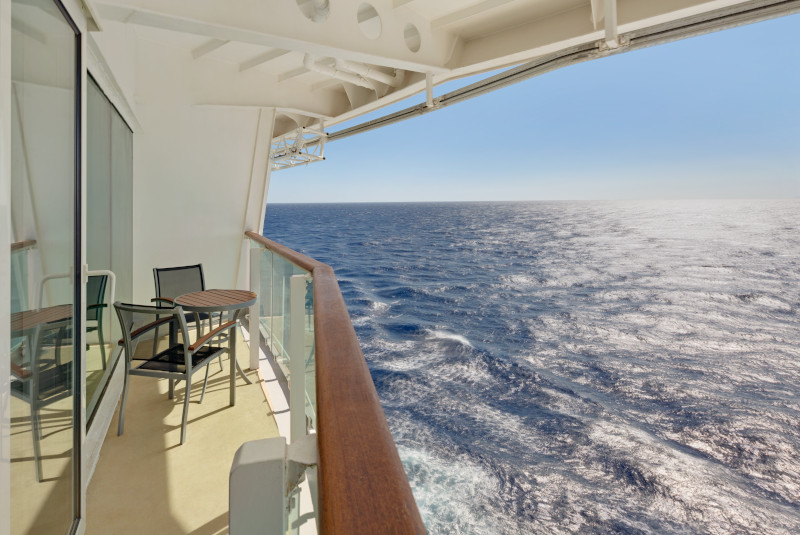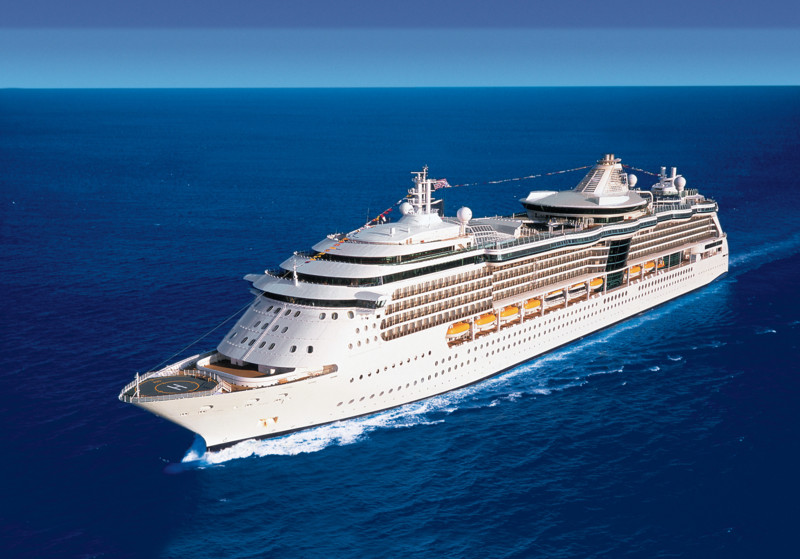Imagine this: You’ve spent months planning the perfect cruise, picturing yourself basking in the sun on a luxurious deck, and more. But then, the unexpected happens—your cruise is canceled.
This can throw even the best-laid travel plans into disarray. So, how can you make the most of this unfortunate situation? For starters, you need to understand why your cruise was cancelled.
Understanding cruise cancellation policies is crucial for any traveler. Policies vary by cruise line, and navigating them can be confusing, especially when refunds, rescheduling options, or future cruise credits (FCC) come into play. Knowing your rights and options in advance can save you time, money, and stress if your cruise plans take an unexpected turn.
In this guide, we’ll take a deeper dive into the common reasons for cruise cancellations, break down cruise line policies, and discuss your rights as a passenger. With the right knowledge, you can confidently book your next cruise and sail away stress-free—no matter what surprises may arise.
Why Cruise Cancellations Happen

Cruise cancellations can happen for a variety of reasons, ranging from natural disasters to operational challenges. While some are beyond a cruise line’s control, others are preventive measures taken to ensure passenger safety and satisfaction.
- One of the most common causes of cancellations is severe weather: Hurricanes, tropical storms, and rough seas can make sailing unsafe, prompting cruise lines to reroute, delay, or cancel sailings entirely. The Atlantic hurricane season (June to November) poses a particular risk, leading many travelers to book cautiously during this period.
- Mechanical failures and operational issues also contribute to cancellations: Modern cruise ships are complex, and unexpected technical problems—such as engine failures or propulsion system malfunctions—can force a cruise line to call off a voyage if repairs cannot be completed in time.
- Health crises have also led to mass cancellations: The COVID-19 pandemic, for example, resulted in an industry-wide halt, with cruise lines adjusting policies to accommodate the unprecedented situation.
Finally, personal emergencies can cause passengers to cancel their trips. Whether it’s a sudden illness, family emergency, or work obligation, travelers often face steep penalties if they need to cancel close to the departure date—unless they’ve taken precautions like purchasing travel insurance.
Cruise lines make cancellation decisions with passenger safety in mind, but understanding the risks can help travelers plan accordingly.
Cruise Line Cancellation Policies: What You Need to Know

Not all cruise lines have the same cancellation policies, which is why understanding the fine print before booking is essential. Policies vary based on factors such as cruise duration, destination, and fare type.
Refund Policies: Full Refund vs. Future Cruise Credits (FCC)
Most cruise lines offer either a full refund or a future cruise credit (FCC) when a cruise is canceled—but the terms depend on who initiates the cancellation. If the cruise line cancels due to operational reasons or severe weather, passengers are usually given the choice of a full refund or FCC. However, if a passenger voluntarily cancels, they may receive only partial compensation or FCC, depending on how close they are to the departure date.
FCCs can come with restrictions—such as expiration dates, blackout dates, and limited redemption options—which can make them less flexible than a straightforward refund. Some cruise lines, like Royal Caribbean and Norwegian Cruise Line, allow FCCs to be transferred, while others, like Carnival, restrict their use to the original passenger.
Voluntary vs. Involuntary Cancellations

If a cruise line cancels due to mechanical failures or severe weather, passengers typically receive a full refund or FCC. However, if a passenger cancels voluntarily, they must adhere to the cruise line’s refund schedule, unless they have travel insurance with cancellation coverage.
Understanding these policies can help travelers make informed booking decisions and avoid unexpected financial losses.
Cancellation Timelines: Last-Minute vs. Advance Cancellations
Cruise cancellation policies typically follow a tiered system. The closer to the departure date a cancellation occurs, the lower the refund amount. For instance:
- 90+ days before departure – Full refund or FCC.
- 60-89 days before departure – Partial refund, often 50-75%.
- 30-59 days before departure – Limited refund or FCC.
- Less than 30 days before departure – Little to no refund.
Some luxury cruise lines, such as Regent Seven Seas and Seabourn, offer more flexible policies, especially for premium fares. To check out a specific cruise line’s cancellation policy, check out our cancellations FAQ page. We try to keep the information as up-to-date as possible so you can plan your cruise risk-free!
Passenger Rights & Refund Options

When a cruise is canceled, passengers have specific rights regarding refunds and compensation. However, these rights depend on cruise line policies, contractual terms, and industry regulations rather than federal laws.
What are Passengers Legally Entitled To?
Unlike airline passengers, cruise travelers are not protected by federal refund mandates. Instead, refund policies are governed by the cruise line’s terms and conditions. Generally, if the cruise line cancels a voyage due to mechanical failures, weather, or other operational reasons, passengers are typically offered a full refund or a Future Cruise Credit (FCC). However, compensation for itinerary changes or shortened cruises varies by cruise line.
The Role of the Cruise Lines International Association (CLIA)
The CLIA sets industry standards and offers guidance on passenger rights. While it does not enforce refunds, it encourages fair policies among its member cruise lines. CLIA advises passengers to carefully review their cruise contracts and purchase travel insurance to protect their investment.
Steps to Take When a Cruise Gets Canceled

If your cruise is canceled:
- Contact the cruise line immediately to review your options.
- Decide between a refund or FCC, if offered.
- Check your travel insurance policy to determine if additional reimbursement is available.
- Monitor your credit card statements to ensure you receive any promised refunds.
How to Dispute Unfair Cancellation Penalties
If you feel a cancellation fee is unjustified:
- Review the cruise contract for refund terms.
- File a complaint with the Federal Maritime Commission (FMC) for U.S.-based cruise lines.
- Dispute the charge with your credit card company if the refund was promised but not received.
Being proactive and knowing your rights can help you recover your money and minimize financial losses.
Travel Insurance: Is It Worth It?

Cruises are a major financial investment, and unexpected cancellations or emergencies can lead to significant losses. This is where travel insurance becomes valuable. But is it worth the extra cost?
Types of Travel Insurance Coverage
There are different types of travel insurance plans, but the most relevant for cruisers include:
- Trip cancellation/interruption insurance – Covers non-refundable costs if you cancel due to illness, emergencies, or other covered reasons.
- Medical coverage – Essential for cruises, as your regular health insurance may not cover you at sea.
- Emergency evacuation – Covers transport to the nearest medical facility if needed.
- Lost baggage and travel delays – Reimburses costs for lost luggage or extra expenses due to flight delays.
Types of Travel Insurance Coverage

Most policies cover cancellations due to illness, injury, weather disruptions, and job loss. However, they often exclude pre-existing medical conditions, pandemics, and cancellations due to fear of travel (unless you purchase Cancel for Any Reason (CFAR) coverage).
How Travel Insurance Works with Cruise Line Refunds
If your cruise line offers a Future Cruise Credit (FCC) instead of a refund, travel insurance may not reimburse you. However, if you are denied a refund and have a covered reason, your insurer can compensate you for the lost amount.
Ultimately, travel insurance provides peace of mind, ensuring you’re financially protected when the unexpected happens at sea.
Tips to Minimize Cancellation Risks

While cruise cancellations are sometimes unavoidable, there are steps you can take to minimize risks and protect your travel investment.
1. Choose Flexible Fare Options
Many cruise lines offer flexible fare options that allow cancellations or changes with minimal penalties. Look for refundable deposits or promotions with "Cancel for Any Reason" policies, which provide more leeway if plans change.
2. Pick the Right Season for Cruising

Sailing during hurricane season (June–November) increases the likelihood of itinerary changes or cancellations. Similarly, winter cruises to destinations like Alaska may be affected by icy conditions. For smoother sailing, consider booking shoulder season cruises, which often have fewer weather-related disruptions.
3. Have a Backup Plan
If your cruise is canceled last-minute, having an alternative travel plan—such as booking a flexible flight or reserving a backup hotel—can help reduce stress. Opt for refundable airfare and accommodations to stay prepared.
4. Monitor Weather and Industry Updates

Stay informed about potential disruptions by checking weather forecasts, cruise line announcements, and travel advisories. Apps like CruiseMapper and MarineTraffic can provide real-time tracking of your ship’s status.
Be Proactive When Booking Your Cruise!
Cruise cancellations can be frustrating, but understanding your rights, policies, and options can help you navigate them with ease. While no one wants to think about trip cancellations, being informed empowers you to make the best decisions for your travel plans.
By staying informed and prepared, you can set sail with confidence, knowing you're ready for whatever the seas may bring. Bon voyage!


